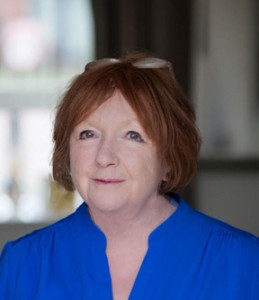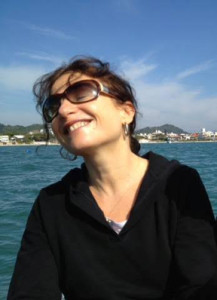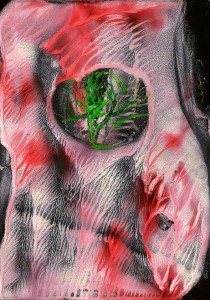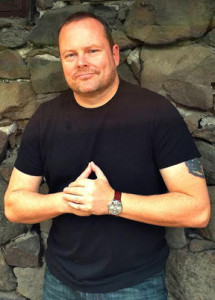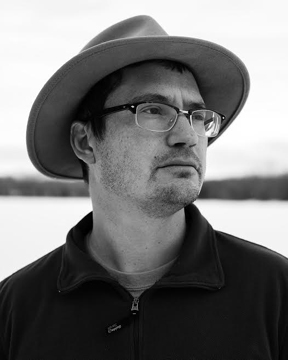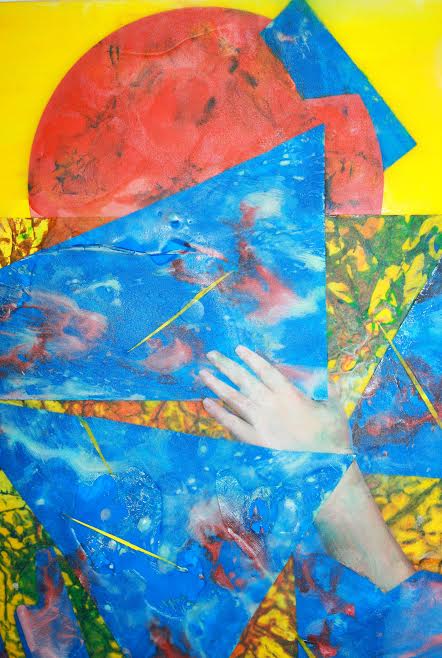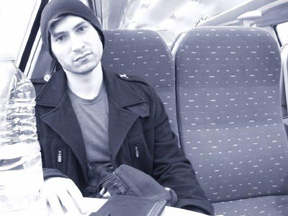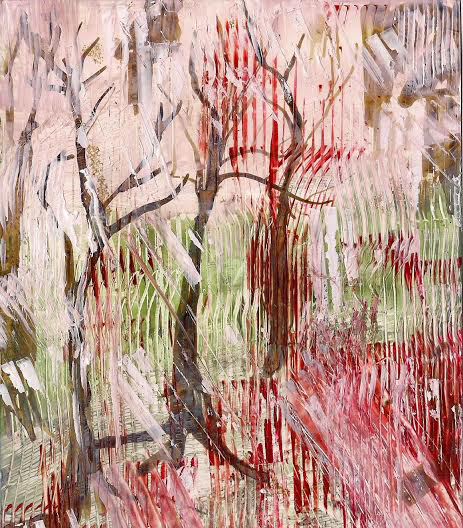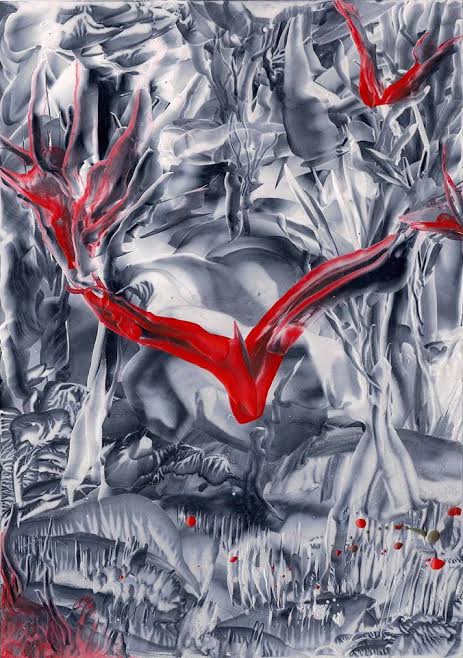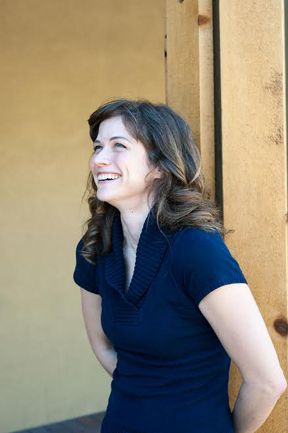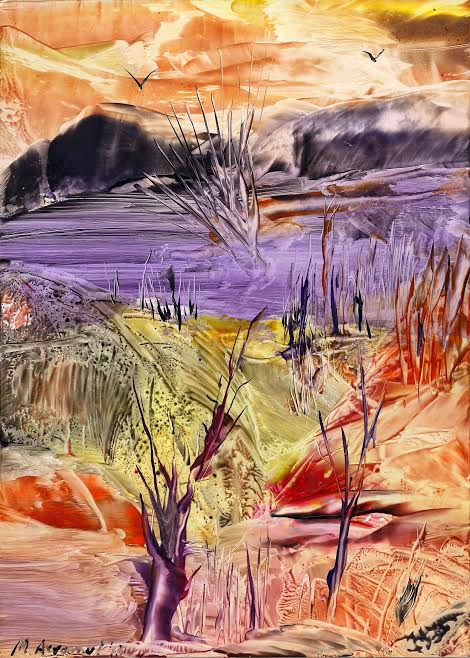Bev Jackson: It is a wonderful honor to interview you, Mary McCluskey. I have followed your work for the past decade or more, and cannot think of another writer who makes the difficult task of creating fine literature look more effortless and authentic. The magic of your work is the combination of the accessibility of the language with the depth of meaning and “word pictures” you draw, bringing the reader right into the story. (Many wonderful writers abound, but there is often a sense of “author’s presence,” various levels of self-consciousness (ego?) that permeates the work, and while it is frequently embraced as “style,” for me, it is a sheer layer, a barrier, to permeate, to get at the story.) Your work puts up no obstacles, but allows us into your characters directly. That is quite a feat. Whether it’s your short fiction or your novels, and they are read “smooth as silk.” I can’t imagine how you accomplish this. Since I write myself, I know that such fluency is not by accident. Can you tell us a bit about your creative process? Does it come easily to you, or do you spend enormous effort in editing and polishing to get this level of perfection?
Mary McCluskey: How kind of you, Bev! I am blushing. That is the nicest thing anyone has said to me in years. Eons, actually.
But to answer your questions. Ah, the creative process. I’ve been helped, during the last decade and longer, by the generosity of you and other fine writers at Zoetrope and other workshops who have reviewed my stories and I’ve learned a little by trial and error. My writing routine follows the same formula whether the piece is long or short, a novel or a flash. I write the first rough draft in a white heat of energy and throw in every damn thing in my head. Then I settle down to shape it. I revise and revise and chip away until only the bones and the essence of the thing are left. I love that part, the second and third revision, when there’s still much to do and the story still has spark and promise. I don’t enjoy the later revisions, the polishing, when the writing has become too familiar and dull and reads like– plod, plod, plod. Here comes the district nurse.
BJ: Ha, your work never plods! Only in your own head. (But I know the feeling of which you speak.)
You have two wonderful flashes in r.kv.r.y: Life Saver in the current Fall issue with the theme of “Goodwill,” and another searing little piece titled Revenge Served Hot to come in the Winter issue themed “Flame.” You have a keen understanding of what makes good flash. It is not just a short story made shorter by word count. The taut snap and crackle of it denotes a genre of its own, which you have mastered brilliantly. How would you define flash fiction, if you were talking to a writer who had never attempted it? I have heard many definitions—prose poetry, slice of life, vignettes. Yet, from my point of view, that doesn’t necessarily add up to successful flash fiction. What are your thoughts on the subject?
MM: Good question. Not sure I can define flash fiction exactly. I’ve read brilliant flashes in all kinds of formats: prose poems, snappy pieces with a sting in the tail, experimental stories that take risks and break all the rules and flashes that tell a complete story, compressed to the core. They all work when done well. What is common to all good flash no matter what the format? They are written with a razor. They start the story late, end it early and stay close to the heart of it. Without one unnecessary word.
BJ: That’s a perfect answer! Yes, the good ones absolutely do! As do yours.
That razor is so often the toughest thing to learn, so wise advice for us all.
Now, the really exciting news is that your debut suspense novel “Intrusion” has been picked up by Little A, the literary fiction division’s imprint of Amazon’s new publishing empire. I hear it’s going to be out in 2016 and I am eagerly awaiting its announcement. Give us a teaser of what to expect? Who would your target audience be (beside the myriad Mary McCluskey fans?) and how did you come up with this particular idea? Inquiring minds want to know. Give us the goods!
MM: Yes, the publication of Intrusion is exciting — and scary! I wake in the wee small hours, those heebie-jeebie hours when, as the Irish say, even God takes a drink and convince myself that nobody will buy it, nobody will read it or review it, and if they do they will hate it. On good days, I just can’t wait for publication. It’s now listed on the Amazon website but they are still deciding on a cover so they are not promoting it just yet. Publication planned for summer next year.
The novel began as a short story that focused on a marriage after the death of a child. It grew into a novella because I kept adding to it, and then the weirdest thing happened: a new character intruded into the novel and began to take over. I’m serious! Sarah Cherrington: charming, patrician and predatory. It’s clear she’s up to no good, she has an agenda, and soon the other characters are drawn into her devious games and power plays.
So, Intrusion began as a domestic drama about a marriage in free fall and became something else entirely – something darker. It doesn’t fit into any particular genre. There’s been some debate on how to describe it – literary thriller or psychological mystery – and so I’m not sure about a target audience. Readers! Anywhere!
BJ: I have no doubt that there will be readers in line for it. I loved it in its early permutations, and can’t wait to see the finished product. But here we are blithely talking about your debut novel. Ta da! Just write the book and pub it, right? Easy peasy? What has been your experience of getting a novel into the hands of a mainstream publisher? I am sure there are many writers who are working madly on their manuscripts that would love to know your journey. Was it arduous? Was it skill or luck? Most importantly, was it worth it?
MM: Easy peasy? Ha! Very funny, Bev. It was a stumbling journey full of roadblocks, dead ends, dashed hopes and, finally, elation.
I should, briefly, mention the two previous novels, now mocking me from my hard drive. One completed, but needing more work than it’s worth, and the other that came to a breathless halt after 200 pages and then died.
So – Intrusion. I made classic mistakes. The first one was to send it out before it was ready in a mad rush to get it published. The moment I considered it “finished” I ran a spell check, made a list of top agents, wrote a fast query letter and then sat back and waited for the Call that Would Change my Life.
It never came, of course. Instead I received a variety of rejection letters, mostly form, a few with suggestions for change, though no two opinions agreed, and one rejection letter, meant for someone else, that discussed a novel about elves in combat. A large number of agents didn’t respond at all.
So, I looked at the novel with cold, critical eyes and began an aggressive revision. Then I sent it out again with a more coherent query letter and a different title and an agent with a good reputation offered to take me on if I agreed to work with her on revising the novel for the market place. I was overjoyed. I had an agent! I signed the agency contract.
At her suggestion, I did one complete revision and then another and it was hard because I was not at all happy with the way the story was shaping. I was particularly unhappy with her suggestion for an improbable upbeat ending and I said so. She sent me an e-mail saying our visions of the novel differed too widely and terminated our contract. I was devastated – what was the point of a contract if an agent could cancel it with one email? – but I was also a wee bit relieved.
I took the novel back, stripped it of all the extraneous new material and got it down to the bare bones. Then I began again.
When I was sure it was ready, I wrote a new query letter and sent the novel out again. This time the interest was immediate and reassuring and I signed with Julia, my present agent. And thus began a new revision but this time I felt in synch with my agent and that made all the difference.
She was – is – so supportive and when we agreed to accept the offer from Little A we had a giddy conversation at 3 in the morning and celebrated.
And next? The process will begin again with the new novel, Deception. It’s just gone off to Julia and I know she’ll have some concerns because it’s even darker than Intrusion and explores some rather unsavory issues.
I see more revision in my future!
BJ: Fascinating, that process! I love happy endings, and in my opinion, it couldn’t happen to a more deserving manuscript. I have a feeling the cork is out of the proverbial bottle now, and we will see a lot more of your novels on the shelves in years to come. Congratulations, Mary, it’s really been fun learning about your career. I hope to follow in your footsteps.
MM: And you will! I just know it. And hey, let’s talk about you for a minute. I’m not used to being on this side of the table. As a journalist for most of my working life I’m more comfortable in the role of interviewer, not interviewee. So please, Bev – tell me what you’re up to these days.
BJ: I wrote a book this year! My last book, the memoir Loose Fish, is on the back burner for now—waiting to be fictionalized, perhaps. My new suspense novel, Blue Lake is now looking for representation. I’m back to doing art during the holiday season, as it always keeps me on keel—until I can face another round of agent queries. And of course I live vicariously through my talented friends, like you!
The highlight of 2015 (besides writing a complete novel) was being asked by Mary Akers to edit the SOS section of r.kv.r.y. I have missed Lit Pot, my previous publishing venture (demise in 2006), so it’s been wonderful fun, and she’s a joy to work with. And that reminds me to ask our iconic interview question. What does recovery mean to you?
MM: Well done, Bev. You’re obviously involved in a number of wonderful and creative things. Here’s hoping that Blue Lake finds the right agent – and soon!
And now onto that rather tricky question —
I think of recovery as simply a slow healing process. There’s not always an end to it. It’s a journey. And yes, we may recover completely from something simple like a bad cold or a bout of flu but a serious illness can leave weakness and scarring; a struggle with addiction can last a lifetime. A devastating grief, in my case the loss of a child, alters a life irrevocably.
I was stunned by grief, frozen in place. With time, I began again the small routines that make up an ordinary life. The damage remains, of course, but those of us affected in these different ways learn to carry our pain, our addiction or our grief with us. Eventually, we learn to carry it better, until it does not weigh so heavily on our shoulders. I see that process, that journey, as recovery.
BJ: Thank you for sharing that. I see your recovery process as one and a piece with your work, reflecting the depth of experience and sensitivity for which readers yearn. It’s a tribute that you are able to share that measure of authenticity with others, enriching all of our lives.
Happy Holidays, Mary. r.k.vr.y and yours truly appreciates this splendid time with you.
MM: Thank you, Bev. And many thanks to r.k.vr.y for setting up this interview. It’s been a pleasure talking with you!

